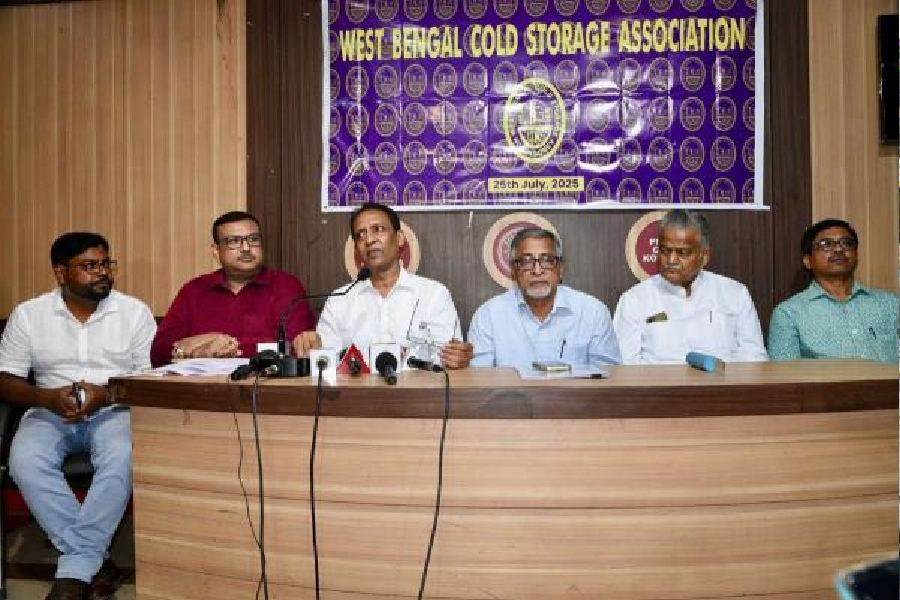The association of cold storage owners on Friday expressed concern over the low prices of potatoes, which resulted in losses for farmers, following a surplus stock of the staple crop because of last year’s interstate trade ban imposed by the Bengal government.
“The government’s ban on interstate potato trade prompted buyers from other states to procure the staple from alternative sellers, resulting in reduced demand for the vegetable in Bengal. With surplus stocks in our cold storage, the demand-supply balance has been disrupted, triggering a fresh crisis for farmers. If farmers suffer, our industry will also be immediately affected,” said Subhajit Saha, the vice-president of the West Bengal Cold Storage Association.
Following a sudden rise in potato prices in October last year, the Mamata Banerjee government swiftly halted interstate potato trade to curb the price hike. Although the move immediately arrested the rising prices, it left cold stores across the state burdened with surplus stock. In December, members of the association warned that the impact of the trade ban would continue into 2025.
Bengal has around 500 cold storage units, and owners claimed that 91 per cent of the capacity was currently occupied because of high production and delays in clearing last year’s backlog. Bengal produces around 100–120 lakh metric tons of potatoes annually, and 60 per cent is consumed within the state. The remaining 40 per cent is sold to other states.
Several potato farmers said they were forced to sell their produce at just ₹5/6 per kg, while the same potatoes are sold in the retail market at ₹20–24 per kg. They urged the government to intervene in the local markets to ensure that farmers received fair prices, instead of middlemen profiting disproportionately.
“The prices are so low that I can’t even sell my produce, even when in need. The retail market is stable, but farmers are not getting a fair price. The government should ensure that we get a proper price,” said Asit Baran Sarkar, a potato farmer from Arambagh.
Cold storage owners also pointed out that although the government had earlier issued a notification stating that 11 lakh metric tons of potatoes would be procured for use in school mid-day meals, the promise had not yet been implemented.
They demanded subsidies for transporting potatoes to other states, which could help them regain market access lost because of last year’s ban. Odisha, Madhya Pradesh, Bihar and Jharkhand are the main states that purchase potatoes from Bengal.
However, state government officials alleged that cold storage owners and a section of traders were deliberately trying to blame the government.
“Potato prices are lower in states like Uttar Pradesh because of higher production. I can confidently say that prices in Bengal are higher than in many other states. Retailers are making more profit now, and the government will certainly take action to address this. But the allegation that the government is at fault is baseless. Potato sales outside Bengal were at their peak in July. We believe a section of cold storage owners and traders is attempting to create trouble for the government,” said Becharam Manna, the state agriculture marketing minister.











